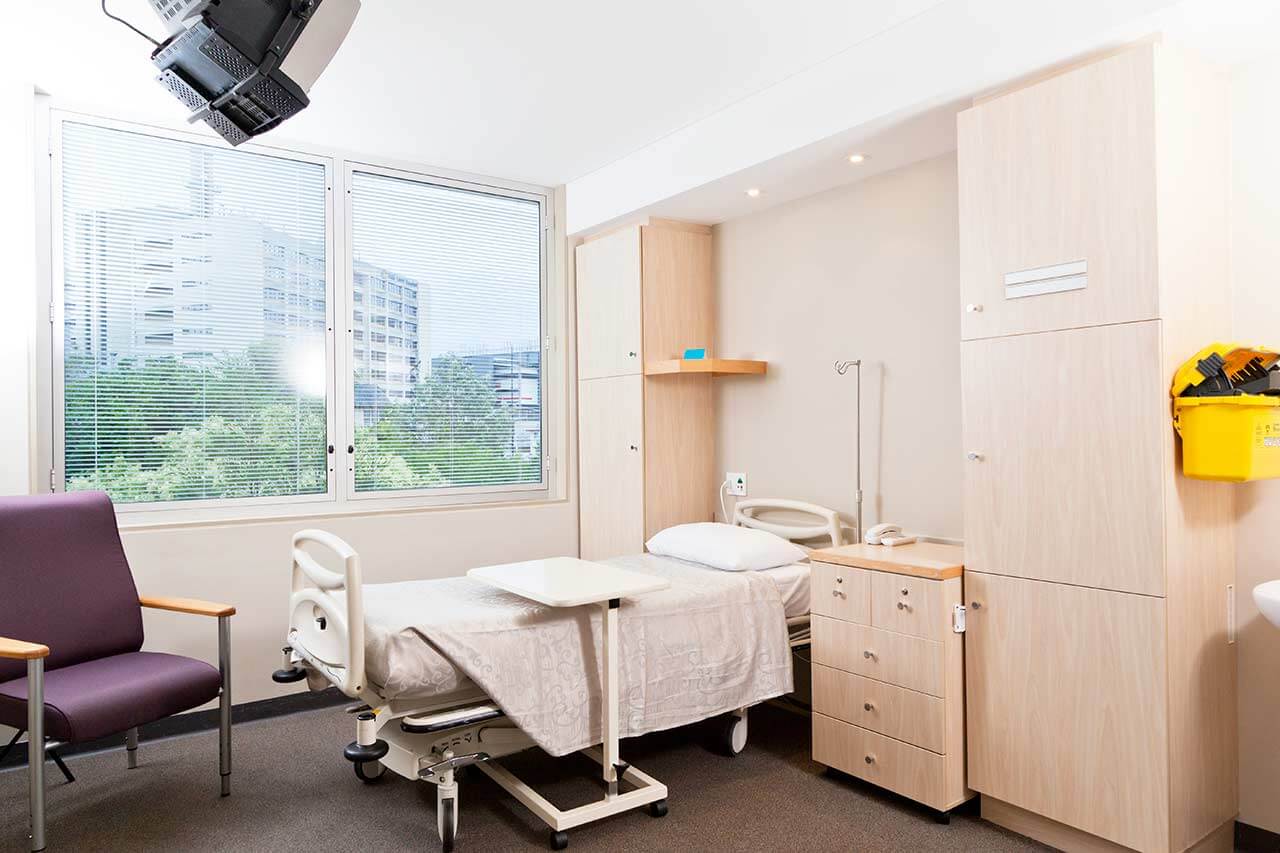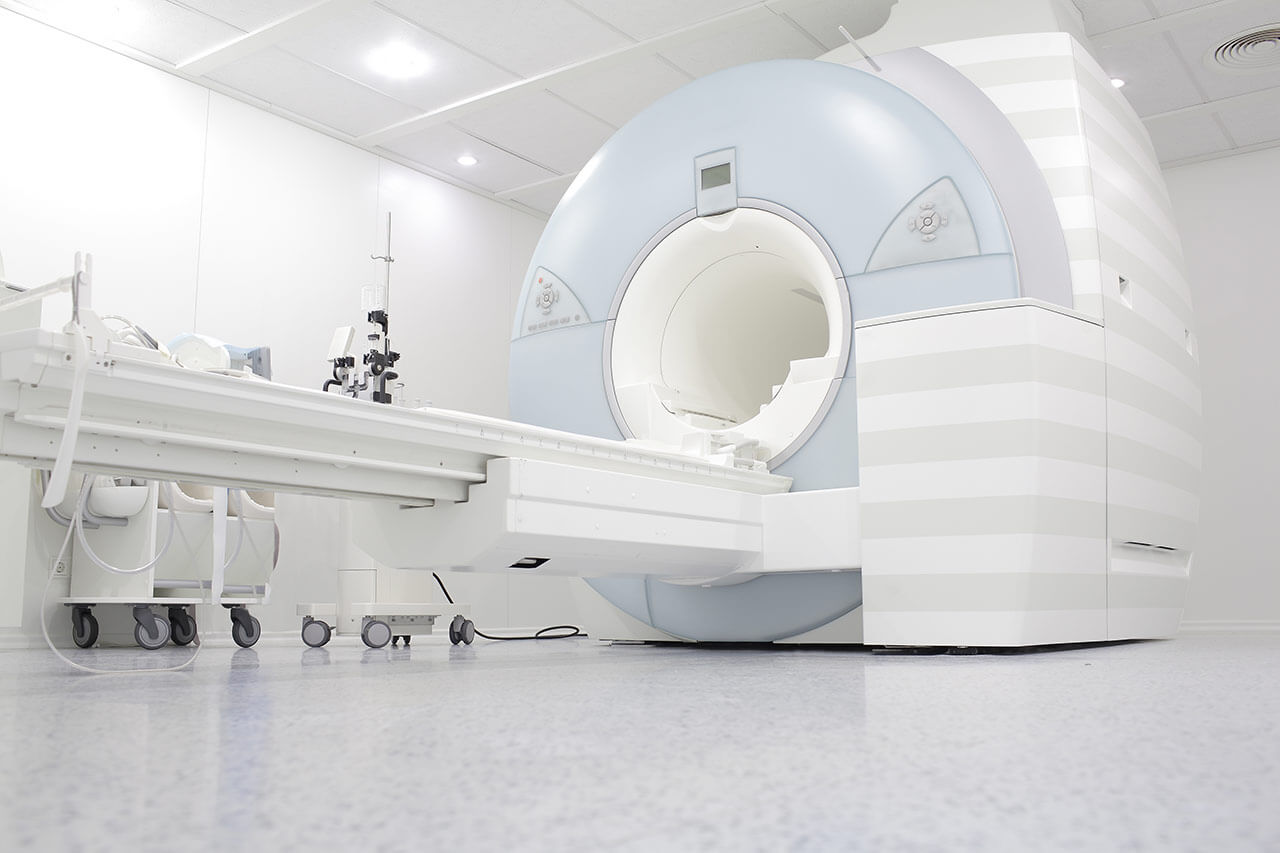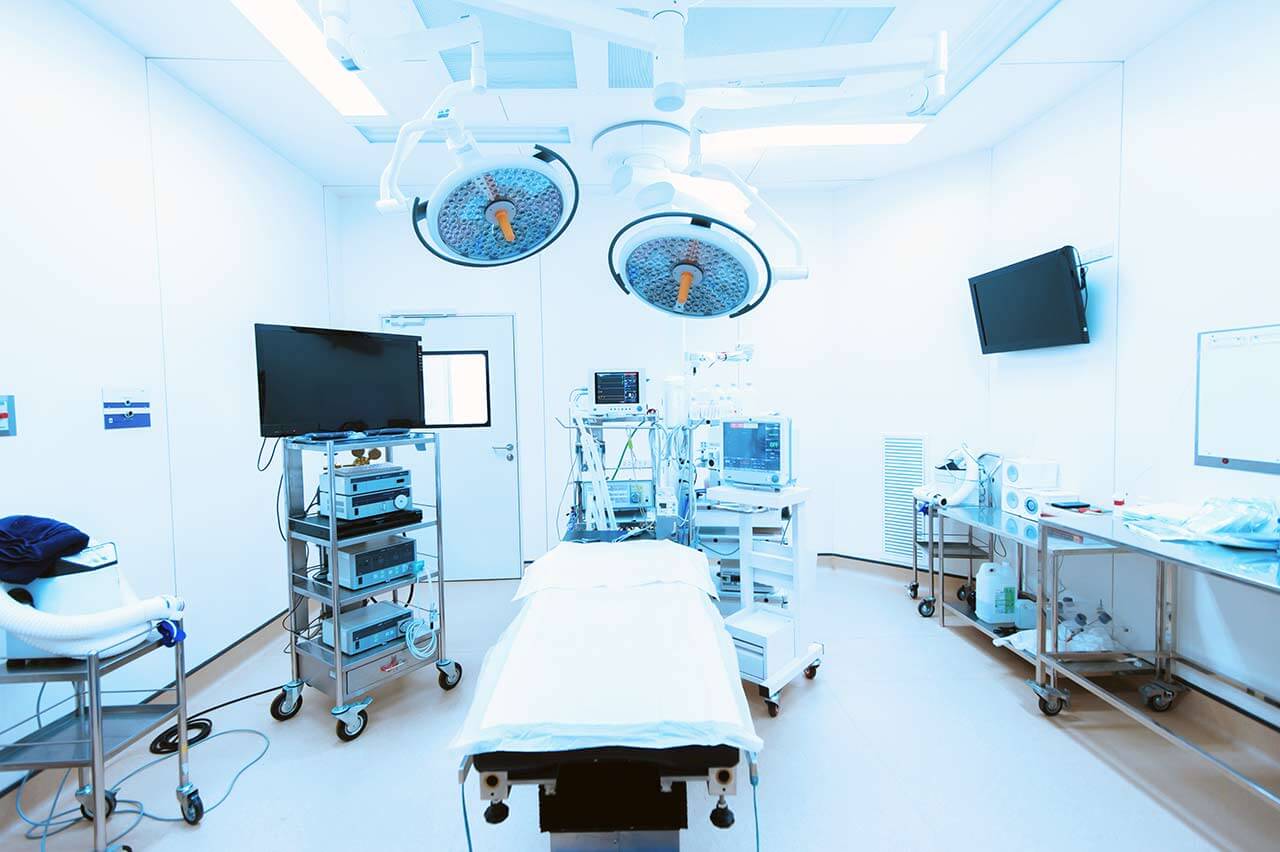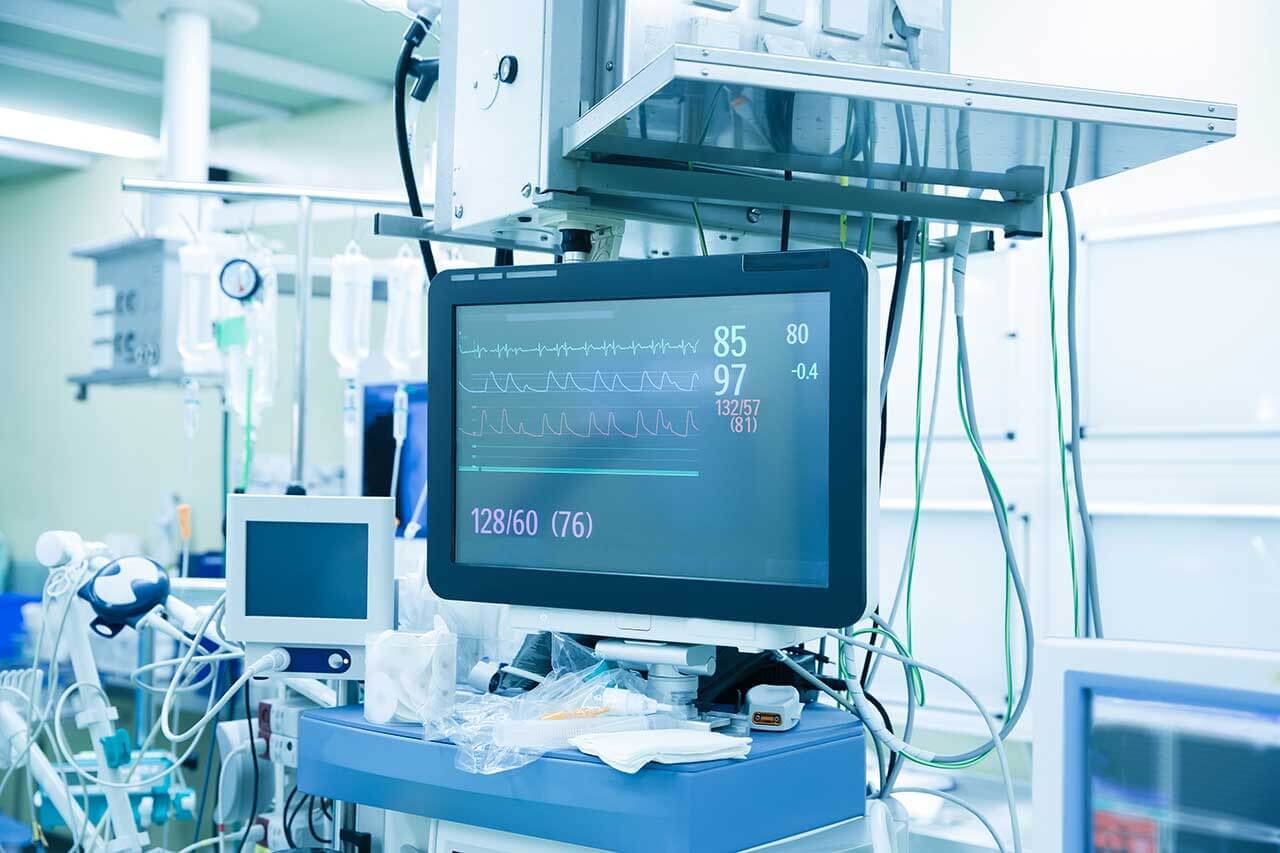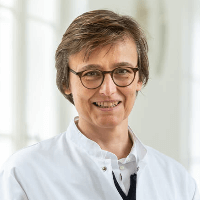
The program includes:
- Initial presentation in the clinic
- clinical history taking
- physical examination
- review of medical records
- laboratory tests:
- complete blood count
- biochemical blood analysis
- indicators of inflammation (CRP, ESR)
- indicators of blood coagulation
- otorhinolaryngological examination:
- rhinoscopy
- otoscopy
- audiometry
- x-ray/ ultrasound
- CT scan of ear (on indication 650 €)
- nursing services
- consultation of related specialists
- consultation of the chief physician and all leading experts
- development of individual treatment plan
- written statement
Required documents
- Medical records
- Audiometry (if available)
- Temporal bone CT scan (if available)
Service
You may also book:
 BookingHealth Price from:
BookingHealth Price from:
About the department
The Department of Adult and Pediatric Otolaryngology, Head and Neck Surgery, Facial Plastic Surgery at the University Hospital Rechts der Isar Munich offers the full range of diagnostic and therapeutic services for patients with ENT diseases. The department is also competent in performing surgery for head and neck malignant tumors: cancer of the oral cavity, pharynx, larynx, skull base, facial skin, soft tissues of the neck and other cancers. The main areas of the department's clinical activities include diagnostics and treatment of hearing loss, cochlear implantation, surgical interventions on the salivary glands and thyroid glands, treatment of diseases of the oral cavity, pharynx and larynx. The department also has an outpatient clinic for phoniatrics and treatment of hearing loss in children. To provide comprehensive treatment, the department has 50 beds, four modern operating rooms and a sleep laboratory. The department annually admits more than 3,000 inpatients, and more than 28,000 outpatients. The experienced team of the department's doctors has deep knowledge in their area of specialization and professionally deals even with the most complex clinical cases. The department is headed by Prof. Dr. med. Barbara Wollenberg.
Special attention in the department's clinical activity is paid to the diagnostics and treatment of head and neck malignancies. Patients with this diagnosis receive medical care in a highly specialized center certified by the German Cancer Society. The therapeutic process is preceded by comprehensive diagnostics, including clinical examination, laboratory tests, imaging tests (CT, MRI, PET). With all the diagnostic results obtained, otolaryngologists and specialists in related fields gather for an interdisciplinary board, during which they develop an individual treatment regimen. Doctors competently combine various treatment methods: surgery, including plastic reconstructive surgery, radiation therapy, chemotherapy, immunotherapy, targeted therapy and other types of treatment.
Another important area of work of the medical facility is the diagnostics and treatment of hearing loss with the implantable hearing aids (BAHA, Vibrant Soundbridge), as well as cochlear implantation. The department's doctors have over 30 years of experience in the field of cochlear implantation in adults and children. Cochlear implantation is indicated for patients with severe hearing loss when other treatment methods are ineffective. The surgery to place a cochlear implant is performed under general anesthesia. The duration of the intervention is 1-2 hours. After the operation, professional rehabilitation is required to set up the device.
Since 2009, the department has been running a special hearing screening program for newborns. The examination uses such techniques as pure-tone threshold audiometry and speech audiometry, tympanometry, acoustic reflex assessment, brainstem electric response audiometry (BERA), recording of brainstem auditory evoked potential, etc. Should hearing loss be diagnosed in a child, he will receive the appropriate treatment.
The department's medical team successfully performs surgical interventions for nasal and paranasal sinus diseases, interventions for skull base pathologies and deformities, as well as facial plastic surgery. When performing operations, surgeons use the very latest computer-assisted technologies and navigation systems in order to guarantee patients not only a high-quality outcome, but also a high safety of surgical treatment.
The department's range of medical services includes:
- Diagnostics and treatment of head and neck tumors
- Malignant tumors of the nose and paranasal sinuses
- Malignant tumors of the ear
- Malignant tumors of the face
- Malignant tumors of the salivary glands
- Malignant tumors of the oral cavity and lips
- Malignant tumors of the pharynx
- Malignant tumors of the larynx
- Endoscopic endonasal and open surgery on the nose and paranasal sinuses
- All surgical interventions for salivary gland tumors
- Laser surgery and open partial laryngectomy
- Total laryngectomy
- Tumor removal with access through the throat (median and lateral pharyngotomy)
- Radiofrequency surgery
- Tumor removal by temporary mandibular splitting
- Reconstructive surgery (flap plastic surgery)
- Interdisciplinary treatment in collaboration with specialists in ophthalmology, maxillofacial surgery and neurosurgery
- Diagnostics and treatment of hearing loss in adults and children
- Cochlear implantation in adults and children
- Placement of implantable hearing aids (BAHA, Vibrant Soundbridge)
- Diagnostics and treatment of diseases of the nose and paranasal sinuses
- Nasal congestion
- Chronic sinusitis with and without polyps
- Complications of acute sinusitis with lesions of the orbit and/or brain
- Punctal or tear duct stenosis
- Inverted papilloma
- Benign tumors (osteoma, cyst)
- Malignant tumors of the paranasal sinuses
- Nasal septum straightening
- Turbinate reduction
- Endoscopic endonasal sinus surgery
- Computer-assisted sinus surgery
- Nasolacrimal duct surgery
- Open surgery
- Combined operations with the participation of specialists in the field of ophthalmology and neurosurgery
- Salivary gland surgery
- Benign and malignant salivary gland tumors
- Infectious diseases of the salivary glands
- Salivary gland stones (sialolithiasis)
- Cystic lesions of the salivary glands
- Autoimmune diseases (Sjogren's syndrome, sarcoidosis, IgG4-related disease)
- Minimally invasive salivary gland endoscopy
- Surgical removal of salivary gland stones
- Intraoperative monitoring of the facial nerve condition
- All methods of salivary gland removal (submandibulectomy, enucleation, extracapsular dissection, lateral/total/radical parotidectomy)
- Facial nerve reconstruction using nerve transplantation, dynamic and static plastic surgery
- Thyroid surgery
- Diagnostics and treatment of sleep disorders (in the in-house sleep laboratory)
- Diagnostics and treatment of voice disorders
- Diagnostics and treatment of swallowing disorders
- Diagnostics and treatment of allergic reactions
- Sneezing
- Itching
- Runny nose
- Conjunctivitis
- Cough
- Swelling and itching of the lips and oral mucosa
- Diagnostics and treatment of angioedema
- Intravenous therapy with C1 inhibitor concentrates (Berinert P®)
- Subcutaneous administration of Icatibant (Firazyr®) bradykinin receptor blockers
- Diagnostics and treatment of balance disorders
- Special training to improve the vestibular system functions (on an outpatient and inpatient basis)
- Infusion therapy
- Tympanostomy tube insertion
- Intratympanic cortisone injections
- Intratympanic gentamicin injection
- Intratympanic labyrinth anesthesia
- Saccotomy
- Facial plastic and aesthetic surgery
- Congenital and acquired nasal defects
- Everted ears
- Defects in the head and neck area after tumor removal or accidents
- Functional rhinoplasty (septorhinoplasty)
- Otoplasty
- Reconstruction of defects using flap plastic surgery (local and rotation flaps)
- Reconstruction of defects with free tissue grafts
- Reconstruction for facial paralysis (for example, nerve transplantation)
- Eyelid surgery and treatment of wrinkles
- Other medical services
Curriculum vitae
University Education and Professional Career
- Since 2003 C4 Professor of Otolaryngology, University Medical Center Schleswig Holstein, Luebeck Campus.
- 2001 - 2003 Heisenberg Scholarship of the German Research Foundation, Helmholtz Center.
- 1999 Habilitation, Ludwig Maximilian University of Munich.
- 1990 Doctoral thesis defense, Ludwig Maximilian University of Munich.
- 1989 - 2000 Physician in the Department of Otolaryngology, Grosshadern Clinic at Ludwig Maximilian University of Munich.
- 1982 - 1988 Study of Human Medicine, Saarland University and Ludwig Maximilian University of Munich.
Memberships in Professional Societies and Organizations
- Since 2017 Deputy President of the German Society of Otorhinolaryngology, Head and Neck Surgery.
- 2014 Member of the "Research Perspectives" Committee of the German Research Foundation (DFG).
- 2013 Board Member of the German Research Foundation (DFG), Representative of Surgery.
- 2013 Board Member of the "Clinical Research Issues" of the German Research Foundation (DFG).
- 2009 - 2014 Expert in the German Research Foundation (DFG) for the German Society of Otorhinolaryngology, Head and Neck Surgery.
- 2006 - 2014 Member of the Advisory Board and Scientific Committee of the Leibniz Research Institute, Borstel.
- 2003 - 2011 Deputy Dean of the Faculty of Medicine, University of Luebeck.
Research Interests
- Development of immunological treatment methods.
- Signal transduction via Toll-like receptors in tumors.
- Apoptosis and release of cytokines by tumors, tumor stem cells.
Prizes and Honorary Memberships
- Since 2015 Member of the German National Academy of Sciences Leopoldina.
- 2004 Georg Heberer Award for Research in Oncology, Munich.
- 2001 Monika Kutzner Prize for Research in Oncology, Berlin-Brandenburg Academy of Sciences and Humanities.
- 1999 Anton von Troeltsch Prize of the German Society of Otorhinolaryngology, Head and Neck Surgery.
Photo of the doctor: (c) Klinikum rechts der Isar der Technischen Universität München
About hospital
The University Hospital Rechts der Isar Munich was founded in 1834. It combines long traditions with the very latest advances in modern medicine. The medical facility includes 33 specialized departments and 20 interdisciplinary centers, where patients can receive top-class medical care in all medical fields.
The hospital annually admits more than 65,000 inpatients for diagnostics and treatment, and about 250,000 outpatients receive effective medical care. The hospital also performs more than 40,000 surgical procedures every year, and about 2,100 babies are born here annually. One of the most significant achievements of the medical facility can be called the first transplantation of both arms above the elbow performed in 2008. The surgery that lasted 15 hours, and in which 40 doctors of various medical specialties took part, became a real sensation in the scientific world. Thanks to a unique surgical procedure, the doctors managed to give the patient new hands.
In addition, the employees of the hospital are actively involved in research activities, in which they study various diseases, as well as develop new therapeutic options for their treatment. It should be noted that the research institutes of the hospital are among the most reputable research organizations in the world. A striking example can be considered the Roman Herzog Comprehensive Cancer Center, whose specialists cooperate closely with the Comprehensive Cancer Center Munich in order to find new treatment methods for cancers.
The university hospital has a strict quality management system to maintain a high level of patient care. Since 2011, the hospital has been certified in accordance with DIN EN ISO 9001:2015 at the national and international level. The medical facility was also recertified by TÜV Rheinland in 2020.
The hospital annually provides medical services not only to German citizens, but also to thousands of patients from different countries of the world. This indicates that the hospital has an excellent reputation in the international medical arena and takes on the most complex clinical cases where other medical centers are unable to help the patient.
Photo: (с) depositphotos
Accommodation in hospital
Patients rooms
The patients of the University Hospital Rechts der Isar Munich live in comfortable single and double rooms with modern design. An accompanying person may stay with the patient in the single room. All patient rooms have an ensuite bathroom with shower and toilet. The furnishings of a standard patient room include an automatically adjustable bed, a bedside table for personal belongings, a table and chairs for receiving visitors, a wardrobe, a telephone and a TV. The patient rooms also have Wi-Fi.
The hospital also has enhanced-comfort rooms, corresponding to the level of a high-end hotel. Such patient rooms have additional amenities: a safe, a mini fridge and upholstered furniture.
Meals and Menus
The patients of the hospital are offered a balanced and healthy three meals a day: breakfast, lunch and dinner. The patients have a choice of three different menus for lunch – a classic full menu, as well as a dietary and vegetarian one. When cooking meals, the chefs comply with the current recommendations of the German Society for Nutritional Medicine (DGEM) and the German Nutrition Society (DGE).
If for some reason you do not eat all the foods, you will be offered an individual menu. The hospital also houses a cafeteria with a large assortment of hot and cold drinks, snacks and desserts.
Further details
Standard rooms include:
Religion
Religious services are available upon request.
Accompanying person
Your accompanying person may stay with you in your patient room or at the hotel of your choice during the inpatient program.
Hotel
You may stay at the hotel of your choice during the outpatient program. Our managers will support you for selecting the best option.
The hospital offers a full range of laboratory tests (general, hormonal, tests for infections, antibodies, tumor markers, etc.), genetic tests, various modifications of ultrasound scans, CT scans, MRI and PET / CT, angiography, myelography, biopsy and other examinations. Treatment with medications, endoscopic and robotic operations, stereotaxic interventions is carried out here, modern types of radiation therapy are also used. The hospital offers patients all the necessary therapeutic techniques.
- CAR T-cell therapy
- Autologous and allogeneic bone marrow transplantation
- Transcatheter aortic valve implantation (TAVI)
- Radical and organ-preserving interventions for kidney cancer
- Iridoplasty and iridotomy with Nd-YAG laser
These are acute and chronic leukemias, solid malignant tumors, heart failure, cardiac arrhythmias, heart valves stenosis and insufficiency, vasculitis, benign prostatic hyperplasia, pathologies of retina and vitreous body, Guillain-Barré syndrome, myasthenia gravis and other pathologies.
- Hematology and oncology
- Cardiology
- Nephrology
- Urology
- Ophthalmology
Over 877 highly qualified physicians work at the hospital.
